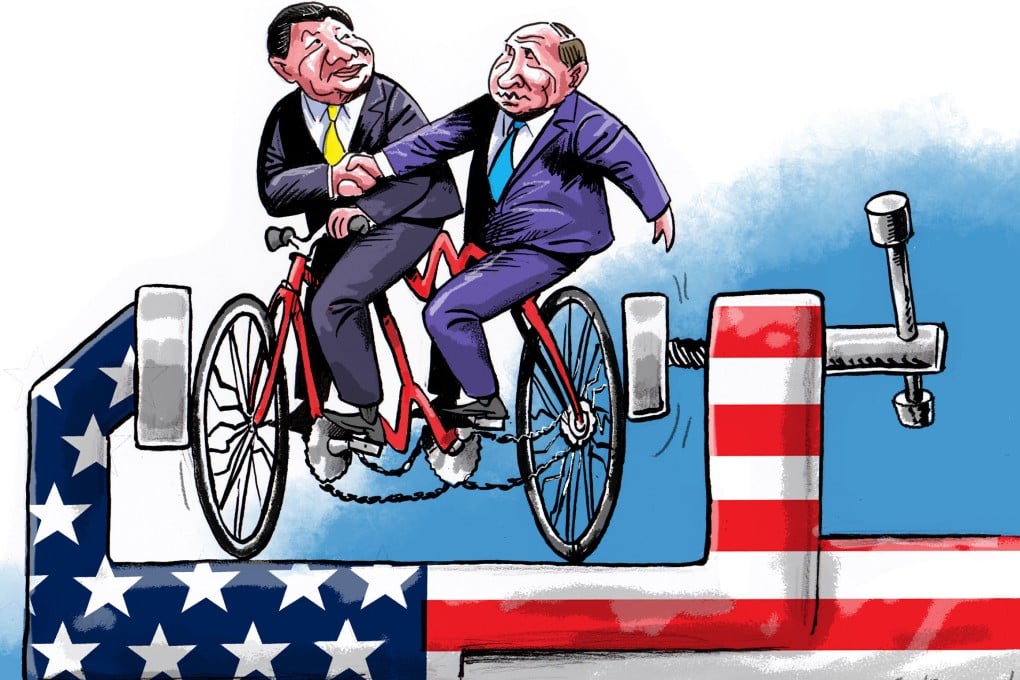Advertisement
Opinion | US pressure is pushing Russia-China cooperation to new levels, beyond defence
- Even though both sides say there are no plans for a formal military alliance, Russia and China have reached historic levels of military cooperation this year
- Beyond this, Moscow and Beijing are embracing collaboration in the political, technological and economic realms
Reading Time:4 minutes
Why you can trust SCMP
30

It has been less than six months since Moscow deemed Russia-China relations to have moved beyond a classical alliance into what was hailed as a “Russian-Chinese tandem”. Russian President Vladimir Putin has described them as at the “best level in history”.
And Chinese President Xi Jinping has stressed that bilateral ties are “a new type of international relations”, classified as a “comprehensive strategic partnership of coordination for a new era”, the highest rank in China’s diplomatic grading.
Though Moscow and Beijing have repeatedly insisted that their relations do not represent a formal military alliance, their level of political trust might lead some to believe they have forged a de facto alliance.
Russia and China already have wiggle room for military-diplomatic manoeuvring under the terms of the Treaty of Good-Neighbourliness and Friendly Cooperation. Warmer relations between the two have not gone unnoticed, with Nato paying closer attention to China’s military development and making active diplomatic-security inroads into the Indo-Pacific.
Nato Secretary General Jens Stoltenberg has called growing Russia-China cooperation “a serious challenge”. Meanwhile, this week’s Nato summit in Riga, Latvia, will address Russia’s military build-up on the border with Ukraine.
Moscow and Beijing have rapidly accelerated military-to-military exchanges, raising concerns about a possible military alliance despite official statements that there are no plans for such an agreement. Even so, Russia and China have reached historic levels of military cooperation this year, holding their first bilateral combat manoeuvres on Chinese soil.
Advertisement
